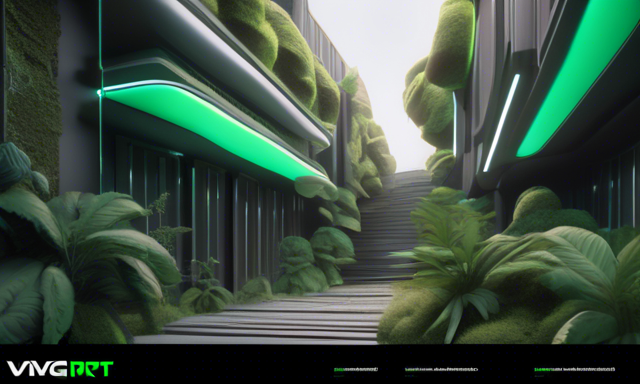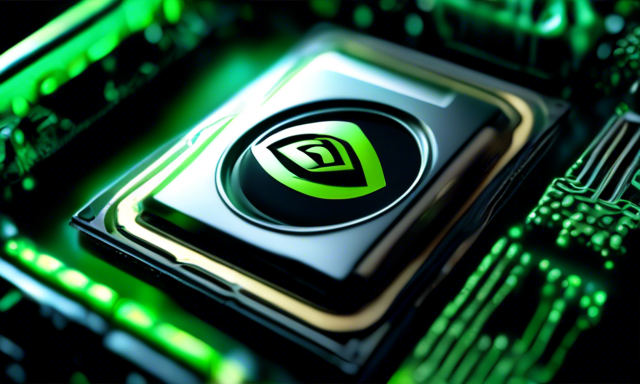Enhanced Inference Performance with NVIDIA TensorRT Model Optimizer v0.15 🚀
NVIDIA has recently unveiled the latest iteration, v0.15, of the NVIDIA TensorRT Model Optimizer, a state-of-the-art quantization toolkit aimed at refining model optimization strategies such as quantization, sparsity, and pruning. This new update is geared towards simplifying model structures and improving the inference speed of generative AI models, as highlighted in the NVIDIA Technical Blog.
Empowering Inference with Cache Diffusion 🔄
The key highlight of the new version is the inclusion of cache diffusion, which builds upon the existing 8-bit post-training quantization (PTQ) technique. This feature speeds up diffusion models during inference by reusing cached outputs from previous denoising stages. Techniques like DeepCache and block caching work to enhance inference speed without necessitating additional training, leveraging temporal consistency of high-level features between denoising steps, making it compatible with models like DiT and UNet.
- Cache diffusion accelerates inference by reusing cached outputs
- DeepCache and block caching optimize speed without additional training
- Leverages temporal consistency for compatible models like DiT and UNet
Quantization-Aware Training Integration with NVIDIA NeMo 🔍
Quantization-aware training (QAT) is a process that mimics quantization effects during neural network training to maintain model accuracy post-quantization. By calculating scaling factors and integrating simulated quantization loss into fine-tuning, the Model Optimizer achieves lower precision in model weights and activations for efficient deployment. Version 0.15 expands QAT support to include NVIDIA NeMo, enabling users to fine-tune models directly within the original training pipeline.
- QAT simulates quantization effects during neural network training
- Integrates simulated quantization loss into the fine-tuning process
- Supports NVIDIA NeMo for direct model fine-tuning
Streamlined QLoRA Workflow for Enhanced Performance 🚀
Quantized Low-Rank Adaptation (QLoRA) is a fine-tuning method that reduces memory usage and computational complexity during model training by combining quantization with Low-Rank Adaptation (LoRA). The Model Optimizer now supports the QLoRA workflow with NVIDIA NeMo using the NF4 data type, making large language model fine-tuning more accessible. For example, on the Alpaca dataset, QLoRA can significantly reduce peak memory usage while maintaining model accuracy.
- QLoRA combines quantization with Low-Rank Adaptation for efficiency
- Reduces memory usage and computational complexity
- Enables fine-tuning of large language models with QLoRA workflow
Enhanced AI Model Support for Diverse Applications 🤖
The latest release expands support for a broader range of AI models, including Stability.ai’s Stable Diffusion 3, Google’s RecurrentGemma, Microsoft’s Phi-3, Snowflake’s Arctic 2, and Databricks’ DBRX. Developers can explore example scripts and support matrices in the Model Optimizer GitHub repository for detailed information on these models.
- Enhanced support for a variety of AI models including Stable Diffusion 3 and Phi-3
- Wide range of models catered to different application needs
- Detailed documentation available in the Model Optimizer GitHub repository
Seamless Integration and Deployment with NVIDIA TensorRT Model Optimizer 💡
The NVIDIA TensorRT Model Optimizer seamlessly integrates with NVIDIA TensorRT-LLM and TensorRT for streamlined deployment. Available for installation on PyPI as nvidia-modelopt, developers can explore example scripts and recipes for optimizing inference on the NVIDIA TensorRT Model Optimizer GitHub page. Comprehensive documentation is also readily accessible for further insights.
Hot Take 🔥
Dear crypto reader, NVIDIA’s release of the TensorRT Model Optimizer v0.15 signifies a significant leap in enhancing inference performance for generative AI models. With innovative features like cache diffusion, expanded AI model support, and streamlined workflows, NVIDIA is empowering developers to optimize their models efficiently for diverse applications. Dive into the latest version to unlock enhanced performance and productivity in your AI projects!





 By
By
 By
By
 By
By
 By
By

 By
By